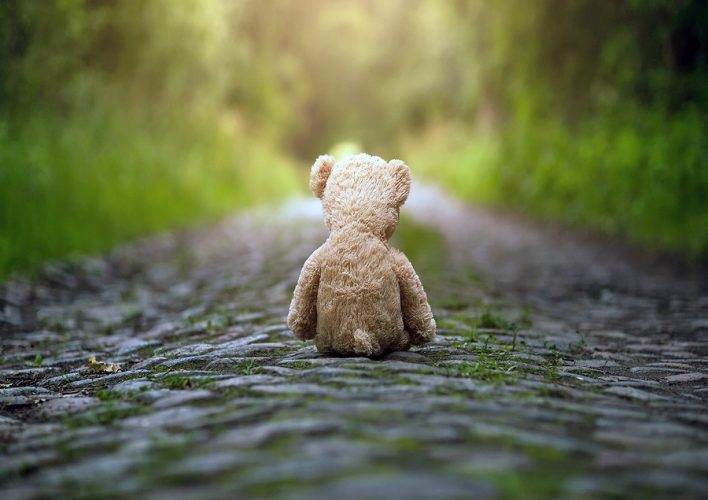Advice
Understanding the impact of Adverse Childhood Experiences (ACE) in adulthood
Updated: 14 November 2019

When a problem arises in our lives, we often wonder what the cause of it is. Why all of a sudden we feel low, anxious or angry. Trying to understand our emotions, we look at our present life and clearly can’t see anything significant what has happened to make us feel that way. Rarely we try to look at the ‘bigger picture’ to understand the root of our dilemma. The crucial part which we might be missing is our childhood. What a child has to face or witness while growing up shapes them and has an impact on the rest of their lives.
Adverse Childhood Experiences (ACE) is a term which represents these negative experiences. There are plenty of different events which matter and can affect child and their future development if a child had to face some kind of abuse: emotional, physical or sexual, the risk of them being traumatized increases dramatically. Furthermore, if the youth have been emotionally or physically neglected, it might have an impact on their future feeling of safety and security. Moreover, when a young person grows up in a house where there is violence between their parents is present, it has a significant impact on their existence. What can also affect a child is their parent’s divorce, a family member dealing with mental illness, or being incarcerated. The last but very important cause of trauma, which a child can be exposed to is substance abuse in the house.
When some of these events occur in the household, we don’t necessarily think of the consequences. Unfortunately, if a young person is exposed just to one of the above, it can already disturb their world. The more traumatic events a child experiences, the more at risk they are and the possibility that they will be dealing with severe consequences in their adulthood are likely.
What are the aftermaths?
Generally speaking Adverse Childhood Experiences in the first eighteen years of life is related to poor outcomes in mental and physical health and social functioning. These accidents can shorten a person’s life by approximately twenty years compared to people who haven’t been exposed to these events in their childhood.
People who experienced multiple traumatic events mentioned earlier in the article are more likely to, as adults, engage in risky behaviours, such as alcohol and drug abuse, having numerous sex partners, cigarette smoking and compulsive eating which can lead to obesity. These are often seen as self-regulating and also the way of coping with difficulties.
As mentioned before, Adverse Childhood Experiences can lead to mental health issues like depression, anger, anxiety and emotional pain as well as dangerous behaviours as suicide attempts.
The third significant area which can be affected by difficult experiences in childhood is physical health. Our mind and body are connected, and unresolved adverse childhood experiences can manifest in our organism and may cause multiple diseases. Also, risky behaviours such as substance abuse are associated with negative physical health outcomes.
What exactly can happen to us?
Our body can develop different types of cancer like liver, breast, lung cancer. These experiences can lead to heart disease, obesity or stroke. Scientists suggest that long-term unrelieved childhood trauma and chronic stress overstimulates the body and brain, makes our immune system weak — increasing risk for the development of autoimmune diseases and cancers.
Knowing the connection between childhood and adulthood is very important. We should remember that what we expose children to has a significant impact on their development and their future as adults. Making them experience or witness some trauma will always leave a painful vestige. Also, as adults, we can understand more than what happens to us now can be caused by what we had to go through in our childhood.
By Marta Jaworska
References
- Julia I. Herzog & Christian Schmahl (2018), Adverse Childhood Experiences and the Consequences on Neurobiological, Psychosocial, and Somatic Conditions Across the Lifespan. Front Psychiatry, 420 (9).
- Karen Hughes, Mark A. Bellis, Dinesh Sethi (2019), Adverse childhood experiences, childhood relationships and associated substance use and mental health in young Europeans, European Journal of Public Health, 29 (4), p. 741–747
MENTAL HEALTH PROFESSIONALS WORKING WITH Depression ISSUES:
Approach: Humanistic & Integrative Psychotherapy , Psychodynamic Therapy
Works with: Individual Session
Specialities: Anger , Anxiety , Bereavement / Loss , Depression , Domestic Violence / Abuse , Relationship issues , Self-Esteem , Stress
Next avaialble appointment: 12:00 26 April 2024
Approach: Systemic & Family Therapy , Person-Centred Therapy , Mindfulness , Internal Family Systems , Psychodynamic Therapy , Humanistic & Integrative Psychotherapy , Gestalt Therapy , Solution-Focused Brief Therapy , Cognitive Behavioural Therapy (CBT)
Works with: Individual Session
Specialities: Trauma , Isolation / Loneliness , Fertility , Depression , Bereavement / Loss , Anxiety
Next avaialble appointment: 14:00 26 April 2024
Approach: Person-Centred Therapy , Creative Art Therapy
Works with: Individual Session , Children & Adolescents
Specialities: Addiction , Anger , Anxiety , Bereavement / Loss , Bullying , Chronic Illness , Depression , Domestic Violence / Abuse , Isolation / Loneliness , LGBT , Neurodiversity , Personal Development , Relationship issues , Self Care , Self-Esteem , Stress , Trauma , Work Issues, Work/Life balance
Next avaialble appointment: 8:00 29 April 2024
Search
Get The Support You Need
From One Of Our Counselors
News
Isolation
Anxiety
Depression
Relationship Issues
Counselling
Personality Disorder
Addiction
Trauma
Children and Adolescent
Anger
Bereavement
Chronic Illness
Communication Issues
Eating Disorder
Post natal depression
Stress
LGBTQI+
Panic Attack
OCD
Resilience
Parental support
Category List
All Posts
News
Isolation
Anxiety
Depression
Relationship Issues
Counselling
Personality Disorder
Addiction
Trauma
Children and Adolescent
Anger
Bereavement
Chronic Illness
Communication Issues
Eating Disorder
Post natal depression
Stress
LGBTQI+
Panic Attack
OCD
Resilience
Parental support

